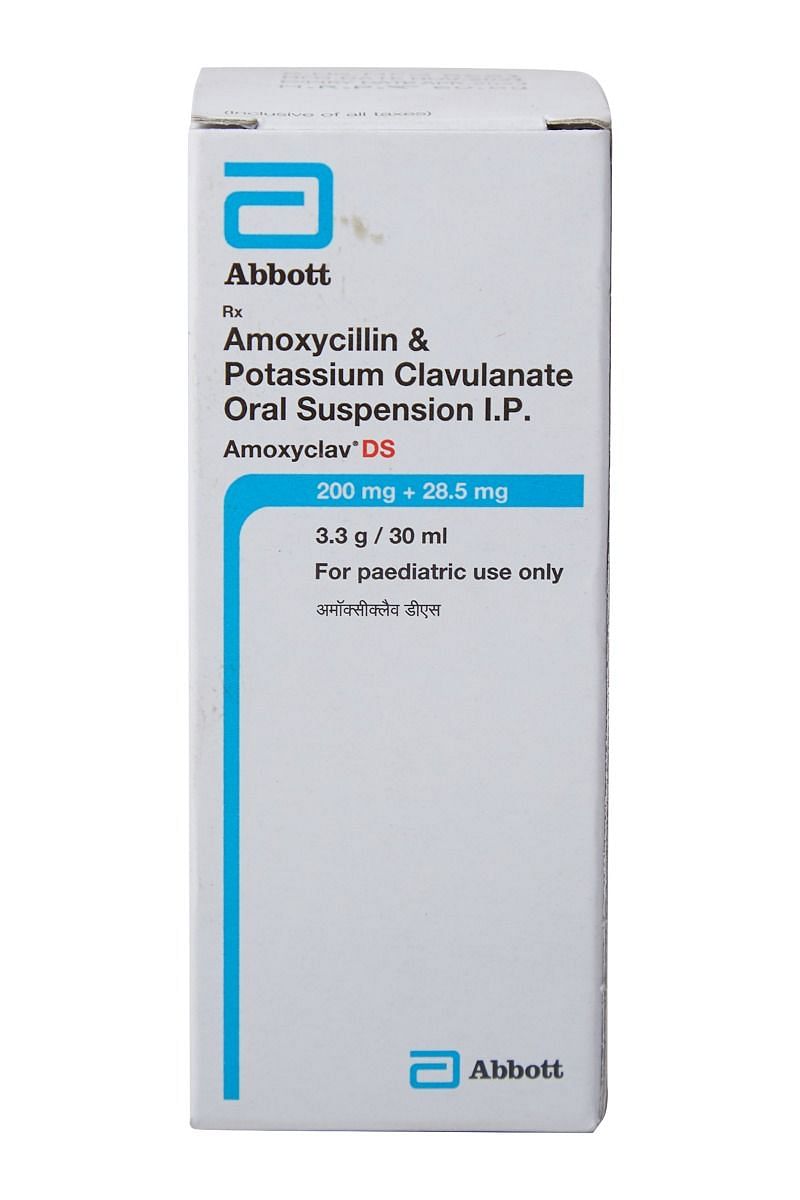
Amoxyrokk CV Dry Syrup
Manufacturer
Rokkwinn Healthcare
Salt Composition
Amoxycillin (200mg) + Clavulanic Acid (28.5mg)
Key Information
Short Description
Amoxyrokk CV Dry Syrup is an antibiotic medicine that helps treat bacterial infections of the ear, nose, throat, chest, lungs, teeth, skin, and urinary tract.
Dosage Form
Dry Syrup
Introduction
Amoxyrokk CV Dry Syrup is an antibiotic medicine that helps treat bacterial infections of the ear, nose, throat, chest, lungs, teeth, skin, and urinary tract. It is capable of killing bacteria that have become resistant to other therapies and thus also helps treat tuberculosis that is resistant to other treatments.
Directions for Use
Your child must complete the entire course of antibiotics. Stopping too soon may cause the bacteria to multiply again or cause another infection.
Safety Information
Side Effects
No common side effects listed
How it works
Amoxyrokk CV Dry Syrup is an antibiotic. It has two active agents amoxycillin and clavulanic acid. Amoxycillin works by preventing the formation of the bacterial protective covering (cell wall) essential for the survival of the bacteria. Whereas clavulanic acid serves a special purpose of inhibiting an enzyme (beta-lactamase) that is produced by resistant bacteria. This makes the combination of amoxycillin and clavulanic acid an effective line of treatment for many types of infections.
Quick Tips
Your child must complete the entire course of antibiotics. Stopping too soon may cause the bacteria to multiply again or cause another infection. Encourage your child to drink plenty of water in case diarrhea develops as a side effect. Never give Amoxyrokk CV Dry Syrup until and unless prescribed by the doctor. Do not give Amoxyrokk CV Dry Syrup to treat common cold and flu-like symptoms caused by viruses. Check ‘expiry’ before giving Amoxyrokk CV Dry Syrup to your child. Immediately discard all the expired medicines.
Related Medicines

Amoxyclav Dry Syrup

Moxikind-CV Dry Syrup

Advent 228.5mg Dry Syrup Tangy Orange

Clavica Dry Syrup

Amcv Dry Syrup

Moxiphar-CV Dry Syrup

Moxit CV Dry Syrup

Alnos CV Dry Syrup

Moxtive Clav Dry Syrup

Moxilink C Dry Syrup
Frequently asked questions
Can other medicines be given at the same time as Amoxyrokk CV Dry Syrup?
Amoxyrokk CV Dry Syrup may interact with certain medications or substances. It is important to inform your child's doctor about any other medications your child is taking before starting this treatment. Always consult your child's doctor before giving any medication to your child.
Can I get my child vaccinated while on treatment with Amoxyrokk CV Dry Syrup?
Generally, antibiotics do not interfere with the ingredients in vaccines or cause a significant reaction in children who have recently received one. However, it is essential to wait until your child recovers from an illness before giving them any vaccine. Once the child feels better, they can receive the vaccine.
Which lab tests may my child undergo while taking Amoxyrokk CV Dry Syrup on a long-term basis?
Regular monitoring of kidney and liver function tests is considered during prolonged treatment with Amoxyrokk CV Dry Syrup. This ensures the ongoing assessment of your child's health condition.
Can I give a higher than the recommended dose of Amoxyrokk CV Dry Syrup to my child?
Giving more than the recommended dosage of this medicine can increase the risk of side effects. If your child experiences worsening symptoms, consult your doctor for re-evaluation.
Can I stop giving Amoxyrokk CV Dry Syrup to my child when the symptoms are relieved?
Do not stop giving this medicine to your child unless the full course of treatment is complete. The symptoms may improve before the infection is completely eradicated. Therefore, follow the prescribed dose and duration for the best results.
Can the use of Amoxyrokk CV Dry Syrup cause diarrhea?
Yes, Amoxyrokk CV Dry Syrup can cause diarrhea as it affects the bacteria in the gut. If your child experiences diarrhea, encourage them to consume adequate fluids and consider consulting a healthcare professional if it persists or you notice signs of dehydration (e.g., decreased urination with dark-colored and strong-smelling urine). Consult your doctor before administering any other medication.
Do all viral common colds result in secondary bacterial infection?
Viruses often cause cold symptoms, but they rarely lead to bacterial infections. Antibiotics are generally not needed for viral infections. Consult your child's doctor before considering antibiotics if they have a suspected bacterial infection.
The mucus coming out of my child’s nose is yellow-green. Is it a sign of a bacterial infection?
Yellow or green nasal discharge does not always indicate a bacterial infection. It's normal for nasal discharge to thicken and change color during a common cold, typically lasting for 7-10 days. If you notice any other signs of illness, like fever, rash, or persistent cough, it's best to seek medical advice.
Is there any sign which shows that my child needs immediate medical attention?
If your child experiences severe allergic reactions (breathing difficulty, skin rashes), gastrointestinal distress (diarrhea), or signs of liver damage (weakness, pale skin, vomiting), contact your child's doctor immediately. These side effects are uncommon but serious and necessitate prompt medical care.


